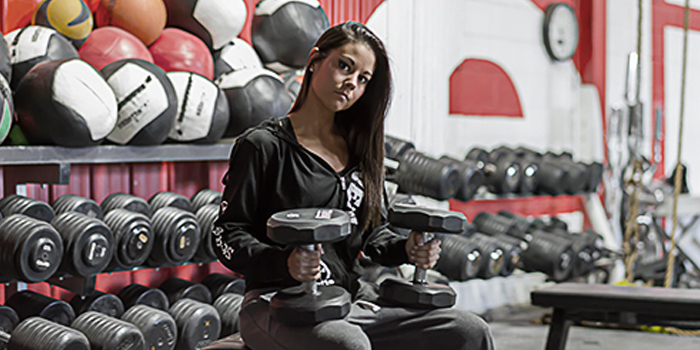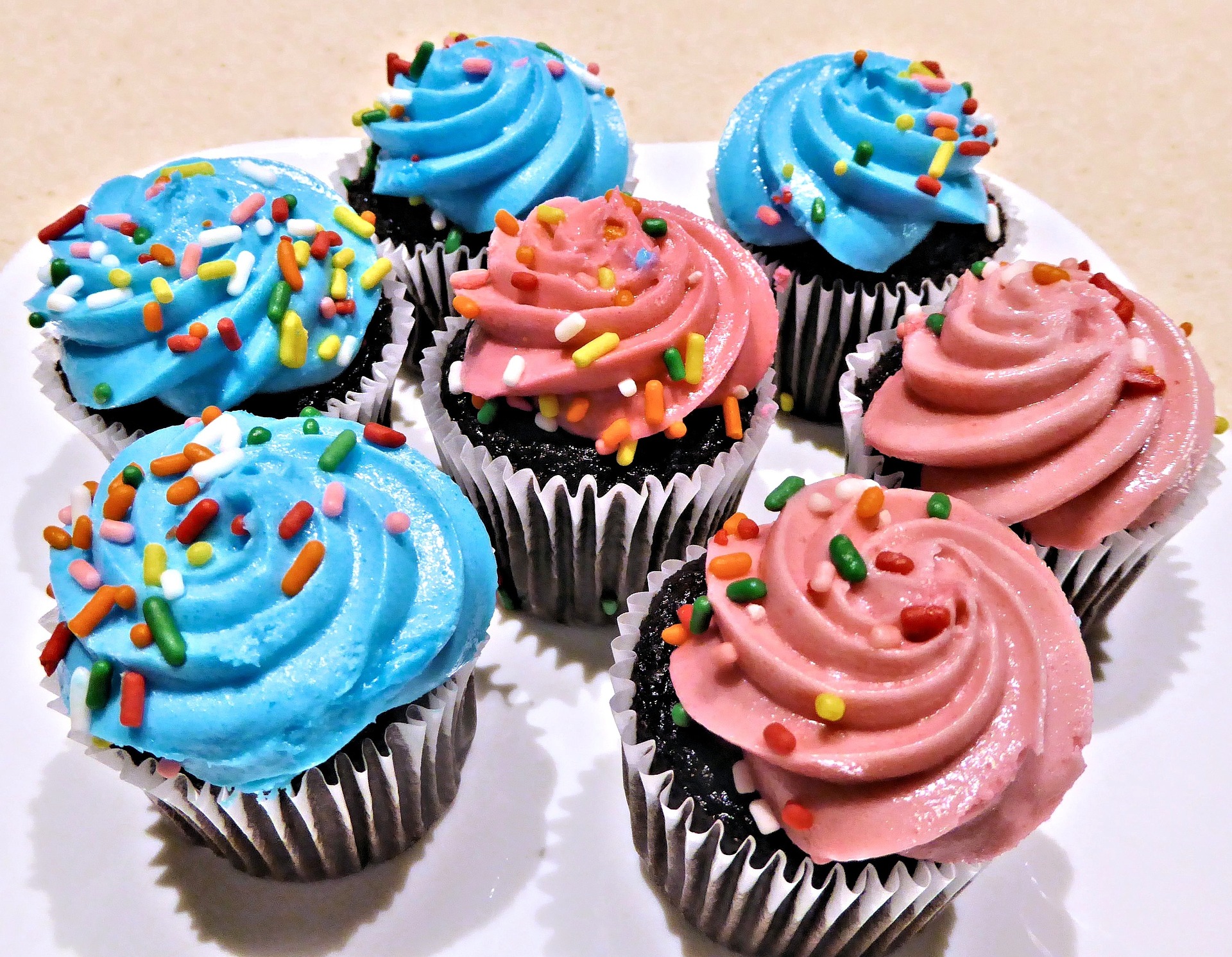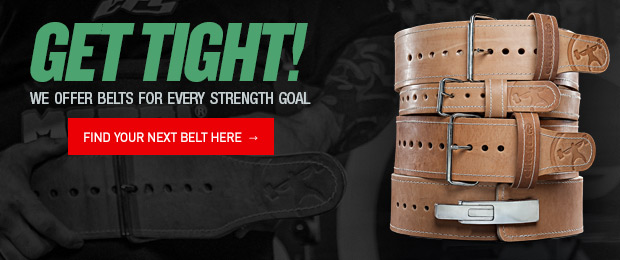
With all the information provided to us through social media, the web, and the news concerning proper nutrition and training, we are bound to be fed incorrect or misleading guidance. So many out there think they are on the right track when it comes to fat loss but are very off base and ill-advised. As a prep coach and competitor myself, I see this happen a lot inside and outside the competition world. Below I have outlined some of the biggest mistakes I see on a regular basis when it comes to fat loss.
You’re Not Eating…Enough
This may honestly be one of the biggest culprits I see when it comes to lack of fat loss or even fat gain, especially in women. Somewhere over the course of time, the 1,200 calorie “rule” showed its ugly face and has been destroying metabolic health in the process. For a healthy individual, 1,200 kcals should be a borderline miserable caloric deficit, not an amount of energy you live comfortably off of day to day.
I have had a ton of potential clients come to me in search of fat loss advice or coaching and one of the first things I ask is how much they are eating daily. The vast majority of them respond that they have been eating within a calorie range of 1,200-1,400 kcals over the course of months or even years, AND...they are usually overweight. The one thing people need to understand is that your body is not stupid. If you embark on a diet that involves fast and extreme caloric restriction, your body will respond accordingly, but probably not in the way you had hoped. You may lose a few pounds at first, but your body does not want to be lean and jacked; your body wants to be comfortable and survive.
RECENT: Food Prep Hacks for the Busy Bodybuilder
If you maintain an extreme caloric deficit over time, your metabolism will slow down and your fat loss will stall. When clients come to me with this problem, the only thing I can really do for them is slowly increase their calories over time and hope their metabolism kicks back up to normal. And yes, they will inevitably gain weight from this at first but unfortunately it’s the healthiest way to mend the damage. Once they are eating a more manageable amount, then we can talk about ways to start losing body fat the right way. This process can potentially take a long time. A lot of clients here this and panic. So as you can see, if you go to drastic measures with your diet, you will pay for it in the long run. Eating the right balance of macronutrients and calories as a whole is vital to metabolic health and overall fat loss potential. As a coach, it is actually easier for me to diet down a client who is slightly overweight but in a caloric surplus than it is to diet down someone of moderate weight eating 1,200 calories. Remember this rule of thumb: you need to eat to lose in order to increase your fat loss potential.
You’re Doing Too Much Cardio
This is also something I see far too often. When it comes to dieting, I like to think of the method like this:
Weight Training = Building Shape and/or Strength
Cardio Training = Conditioning
Nutrition = Fat Loss and Muscle Preservation
A lot of people put way too much emphasis on cardio training as a means to fat loss without making their nutrition the priority. You cannot out train a bad diet, period. If your nutrition is out of whack, you can do all the cardio in the world and still look and feel awful. Cardio should not be used as a means to wither you away; cardio should make you look conditioned and athletic. Doing hours upon hours of cardio every day is not only counterproductive to fat loss over time, but it leaves you nowhere to go. Similar to under eating, when you are trying to lose body fat you always need to give your body room to move. By that I mean, if you start a 12-week prep and immediately jump to six cardio sessions a week, what happens when your body adapts? Which it will, and fast I might add. Do you go to two-a-days eight weeks out? That obviously is not going to work long term and would actually hinder you. You would be better off starting with two cardio sessions 12 weeks out, then build from there if and when need be. Slowly adding it in as time goes on. Your body will adapt, but at least you will have room to add frequency or duration when it does. Remember, cardio is supposed to help your look like an athlete, not frail and depleted. Sometimes less is more here.
You Rely on Supplementation
If I had a dollar for every time I heard “well I am taking (such and such supplement)” when I ask what a client’s nutrition is like, I would be rich. Don’t get me wrong, I am a fan of supplementation especially when in a caloric deficit. But supplements should not be the primary focal point. I like to think of dieting comparable to making a cake (figures, right?). Weight training and nutrition is your batter for the cake, or your foundation. Your batter is what makes the cake, a cake. Without it, you’re basically rendered useless at cake baking. Cardio is your icing for the cake. It’s not the primary piece but definitely makes a difference in the overall outcome. The sprinkles are your supplements. Sometimes you can do without them, but in some cases they can give you the final touch you need to finish everything off nicely.
RECIPE: Protein Packed Pumpkin Pancakes
You can also think of it in order of priority. Supplements should be used to supplement your diet as a whole and should be a complimentary piece to your overall training and nutrition regimen. They should not be the cake, or even the icing. Supplements are sprinkles.
You Strictly Avoid “Chemicals”
This one will probably rattle some nerves, but I’m going to stir the pot and discuss it. There has been an anti-chemical epidemic that has established a huge following of fear mongers over the years and it has somehow leaked its way into fat loss protocols. Let’s get this out of the way first: EVERYTHING is made of up chemicals.
Okay, now that we have that out of the way, let’s move on. Secondly, let’s not confuse health with fat loss. Yes, eating for health and eating for fat loss can actually be two different things. Healthy foods are simply deemed fat loss foods by the general population because most are naturally low in calories. Also, what is deemed healthy is technically different for everyone, but that discussion can be for another article. When it comes to things such as diet pop or calorie-free items, I personally think these are a Godsend to the contest prep world.
Calorie free/sugar free/fat free foods have been demonized by main stream media and poorly executed and biased research. If a food or drink does not contain calories (energy) your body cannot magically process energy out of thin air and turn it into fat. Therefore, calorie free is calorie free. Calorie-free beverages and additives taste great and curve cravings without packing on the pounds. This really depends on the person, as some folks are more than happy to eat bland food day in and day out. Most however, need creative ways to make their meals taste great without adding additional calories.
Strictly avoiding “chemicals” while dieting will most likely lead you to cheat, binge, or just give up. The only time I start removing such items (diet pop, Splenda, etc.) from my plan is when I am a few weeks out from a show to prevent potentially holding water. These items are the last thing to go in my diet before I hit the stage simply to make sure my water balance is where it needs to be. Again, health and fat loss are not the same thing. Of course drinking water and staying as natural as possible might be a healthier option, but when a competitor is dieting, craving something sweet, and is choosing between Coke Zero and a piece of cake...Coke Zero all the way.
Take Home Points
- Eat enough to build and develop fat loss potential over time.
- When it comes to cardio, less may be more.
- Supplements are the sprinkles, not the cake!
- Live a little and drink a diet pop.












I have a friend who just quit drinking (no it's not me) Let him drink coffee and smoke for the time being- drinking was killing him much quicker than those things - same with diet drinks.
Also -
Invest in a soda stream machine and zap your water - I found it was the carbonation that I liked so much - not the sweetness of the soda. I drink tons of water now because od it.
Yes, I am aware that a few studies have shown that carbonated water might cause problems - see my point above.
Michael - Good points. It definitely can, but again kind of like Craig said it depends on where you are coming from. If you are a typical regular soda drinker, switching to diet will be better. It is hard to make an argument against that. However, in the grand scheme of things...egg whites also have an impact on insulin...but no one is raging against that. Every time you eat your blood sugar and insulin will respond. It's the natural process of digestion. So I am not sure what the fuss is about.
Karen - I try not to make absolute statements about anything, but I appreciate you reading none the less.
Craig - yes for me it is more so the carbonation that I like for sure. Definitely kills cravings for me.